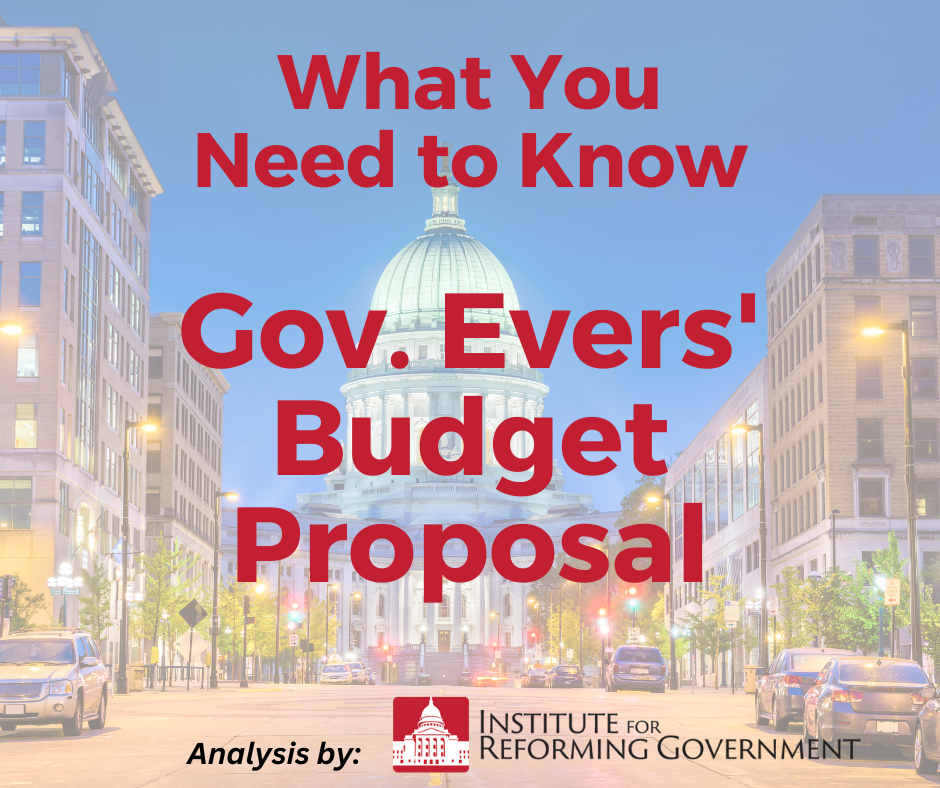Delafield, WI – Today, the policy team at the Institute for Reforming Government released its summary analysis on Governor Evers’ proposed 2023-2025 budget, highlighting how it impacts families in areas of state spending including on taxes, K-12 and higher education, healthcare and insurance, workforce, energy and broadband, baseball park district, constitutional concerns, public safety, local governments, and more. Click here to read the full analysis.
Key Highlights:
- The middle class gets hit hard in Governor Evers’ budget with higher tuition, fewer options on where to send their children to school, increased energy costs, and fewer job opportunities resulting from increased taxes on manufacturers.
- The Governor’s budget spends down the entire surplus. As a result of this spending, the state will go from a $7 billion positive balance at the end of this fiscal year to a deficit of $2.8 billion by the end of fiscal year 2027.
- With such an emphasis on growing government, there is little in the way of using the surplus for tax reform. It dramatically increases taxes on job creators. Wisconsin needs its policymakers to be bolder to take advantage of a once in a lifetime opportunity to transform the state.
- Governor Evers completely ignores the more than $1.4 billion in federal COVID relief that was allocated to schools. Of this, $985 million has yet to be allocated. Nevertheless, he proposes giving $2.8 billion more to the DPI, a 17.2% increase in spending, without necessary reforms to help our struggling students.
- Despite being reined in by the Wisconsin Supreme Court numerous times, Governor Evers has proposed a budget that is chock full of potential violations of the U.S. and Wisconsin Constitutions and that jeopardizes free speech, religious freedom, property rights, and the separation of powers, among other areas.
The bottom line: Governor Evers’ proposed budget irresponsibly spends down the unprecedented surplus in a manner that would require lawmakers to eventually either make massive tax increases or deep cuts to public services.

